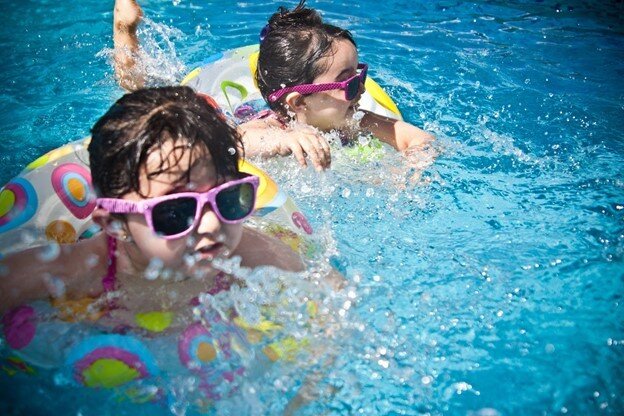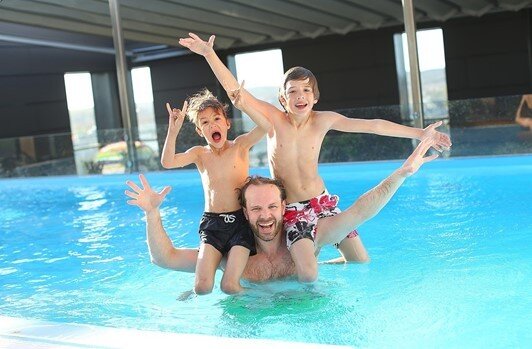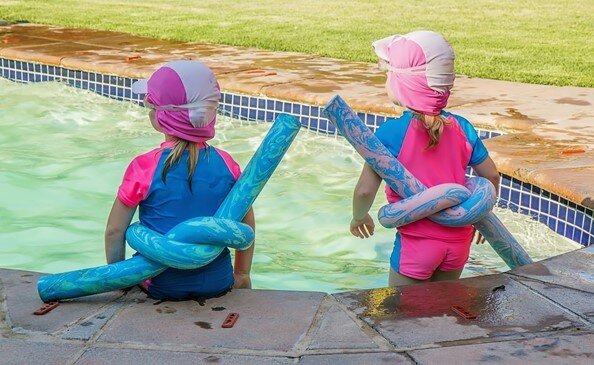
The chances of an investigation by the Massachusetts (hereinafter “MA”) Department of Children and Families (hereinafter “DCF”) are extremely probable after an injury to children at the swimming pool. Should parents take the blame, they could face allegations of neglect initiated by the DCF.
With families returning to the swimming pools this summer, DCF is on high alert to investigate injury due to inattention on the part of parents. During these times, it’s crucial for parents to understand what are my rights during a DCF investigation.
Why Parents Need To Understand Pool Safety
Swimming in pools is a great way for parents to take their children out of the scorching heat to cool off. It’s also a great place to learn important skills, stay active, and have some fun as a family.
However, the swimming pool does have its inherent risks. On average, ten people die from drowning every day in the United States. Additionally, there are 6,400 pool and spa-related injuries in children younger than 15 years of age each year. It’s no secret that the younger the child, the higher the risk of drowning.
In some cases, a split second could mean the difference between safety and tragedy. If an incident does occur, the MA DCF will more than likely get involved. The DCF will question parents on whether neglect took place and will use that one moment to take your children. All it takes is one momentary lapse of judgment to risk losing your parental rights for good.
A 5 year-old boy was visiting his cousin’s house and drowned in the neighbor’s pool in Malden, MA. It is unclear how he got into the neighbor’s backyard nor the pool. All it takes is a second for a child to run off in curiosity. Already dealing with the injury or death of your child, handling the MA DCF is an extra burden you should not have to face.
Preventive Measures to Take at the Pool
Everyone has a role to play in ensuring the safety of those in the pool. Consider the following safety tips so that your children can have fun and stay safe at the same time.
Never leave children unattended in or near water
Always watch children when they are in or near water. Never leave them unattended. Designate an official “Water Watcher.” The Water Watcher should be an adult whose sole responsibility is to supervise children while they play in the water. That should be their only task – not reading, texting, or browsing their phone. Place your phone close by in case you need to call for help. If a child is missing, ensure you check the pool first.
2 year-old Anthony Marrero was in critical condition in Lawrence, MA when he wandered into the pool in his backyard. His aunt, who was swimming while he played outside of the pool, had stepped away. Fortunately, his aunt and mother got to him in time after his mother asked where he was. If they had not gone back to the pool to check for him right away, it may have been too late.
Teach children how to swim
Swimming is not only fun, it’s a lifesaving skill. Enroll children in swimming lessons. Free or reduced-cost options are available from your local YMCA, USA Swimming chapter, or the Parks and Recreation Department. You can also locate a swim coach for your children through the American Red Cross.
Keep children safe by teaching them how to swim.
Ensure your home pool has compliant drain covers
Keep children away from drains or suction outlets, especially in spas and shallow pools. Never enter a pool or spa that has a loose, broken, or missing drain cover. Hair, limbs, jewelry, or bathing suits can all get sucked into a drain. Ensure you locate the emergency vacuum shutoff before entering a pool.
Seven-year-old Virginia Graeme Baker, after whom the Pool and Spa Safety Act is named after, died from drowning due to a suction entrapment from a faulty drain cover. As a result of this tragic incident, all public pools and spas are mandated to have drain grates or covers that meet safety standards. Consult with the pool compliance safety checklist to ensure your pool is up to safety standards.
Keep children away from pool drains
Founder of the Pool Safety Council, Paul Pennington, states, “The force of a drain on a residential pool has a weight of at least 500 pounds…A parent can’t lift 500 pounds off the ground.”
Even with the proper drain covers or the new dome designed drains, inconsistent checkups can lead to overlooking popped up or rusted screws that need to be replaced.
Implement all pool safety measures and make sure the pool drains have proper grates or covers. But in the case that your child does get stuck in a drain, Pennington offers advice:
“Don’t try to lift him or her straight off the drain…the force of the suction makes that impossible. Instead, reach across the child, wedging your fingers between the drain and their body. Then peel or roll them off by pulling sideways.”
Install proper barriers, covers, and alarms around your pool and spa
In addition to keeping an eye on the children, having a proper gated barrier around the pool can ensure there will be no blink-of-an-eye accidents.
Proper fences, barriers, alarms, and covers can be life saving devices. A fence of at least four feet in height should surround the pool or spa on all sides, preventing children from climbing through. The pool should only be accessible through a self-closing and self-latching gate.
Instruct your children to never climb over the gate or fence. Install a door alarm from the house to the pool area and keep pool and spa covers in working order.
Know how to perform CPR on children and adults
Typically, bystanders are the first on scene to aid a drowning victim. Learning CPR may very well help save a life. Once you are CPR certified, ensure you keep current with your certification.
CPR classes are available through many hospitals, community centers, or by contacting the American Red Cross. Locate a CPR certification around your area through the Red Cross organization.
Take the “Pool Safely” Pledge!
Before heading to the pool or spa with your family, remember to take the Pool Safely Pledge. This online call to action is a reminder to stay safer around the water.

The Pool Safely Pledge is a campaign asking Americans to follow safety steps around the water.
Virginia Graeme Baker: Pool & Spa Safety Act
The tragedy of Virginia Graeme Baker led to the founding of the Pool & Spa Safety Act, signed into federal law in December 2007. This act was in response to the need for a coordinated effort to prevent further loss of life in pools and jacuzzi areas.
Despite being a member of her community swim team, seven-year-old Graeme Baker got stuck in a hot tub drain. Even with the efforts of her mother and two full-grown men in attempting to pull her out, Graeme drowned due to the suction force of a faulty drain cover.
This tragic story of young Graeme serves as a reminder for future generations of parents and children to ensure safety precautions are taken when visiting the pool. Be proactive in these preventative measures, and keep your children educated on these dangers. In this context, it’s also important to be aware of the DCF parental alienation issue, which can have a significant impact on child welfare.
Additionally, set an example for all members of your family by following the Pool Safely steps – you never know which one of these steps will save a life until it does.
![]() Kevin Seaver is a trusted Massachusetts DCF lawyer specialized in DCF law since 1991.
Kevin Seaver is a trusted Massachusetts DCF lawyer specialized in DCF law since 1991. ![]()
DISCLAIMER
You find yourself in this situation, it’s advisable to seek legal representation from a qualified attorney, like those at the Law Office of Kevin Seaver, who can advocate for your rights and guide you through the complex process of a DCF investigation.
Remember that the ultimate goal of DCF is to ensure the safety and well-being of children while supporting families in crisis.
Please note that this article does not create an Attorney-Client relationship between our law firm and the reader and is provided for informational purposes only. Information in this article does not apply to all readers.
Readers should not rely on this information as legal advice and should seek specific counsel from the attorney based on personal circumstances. Thank you.
Kevin Patrick Seaver is a Massachusetts DCF Defense Lawyer who represents parents against false child abuse allegations.

Massachusetts DCF Defense Lawyer Kevin Seaver has been successfully fighting false child abuse allegations since 1991.


